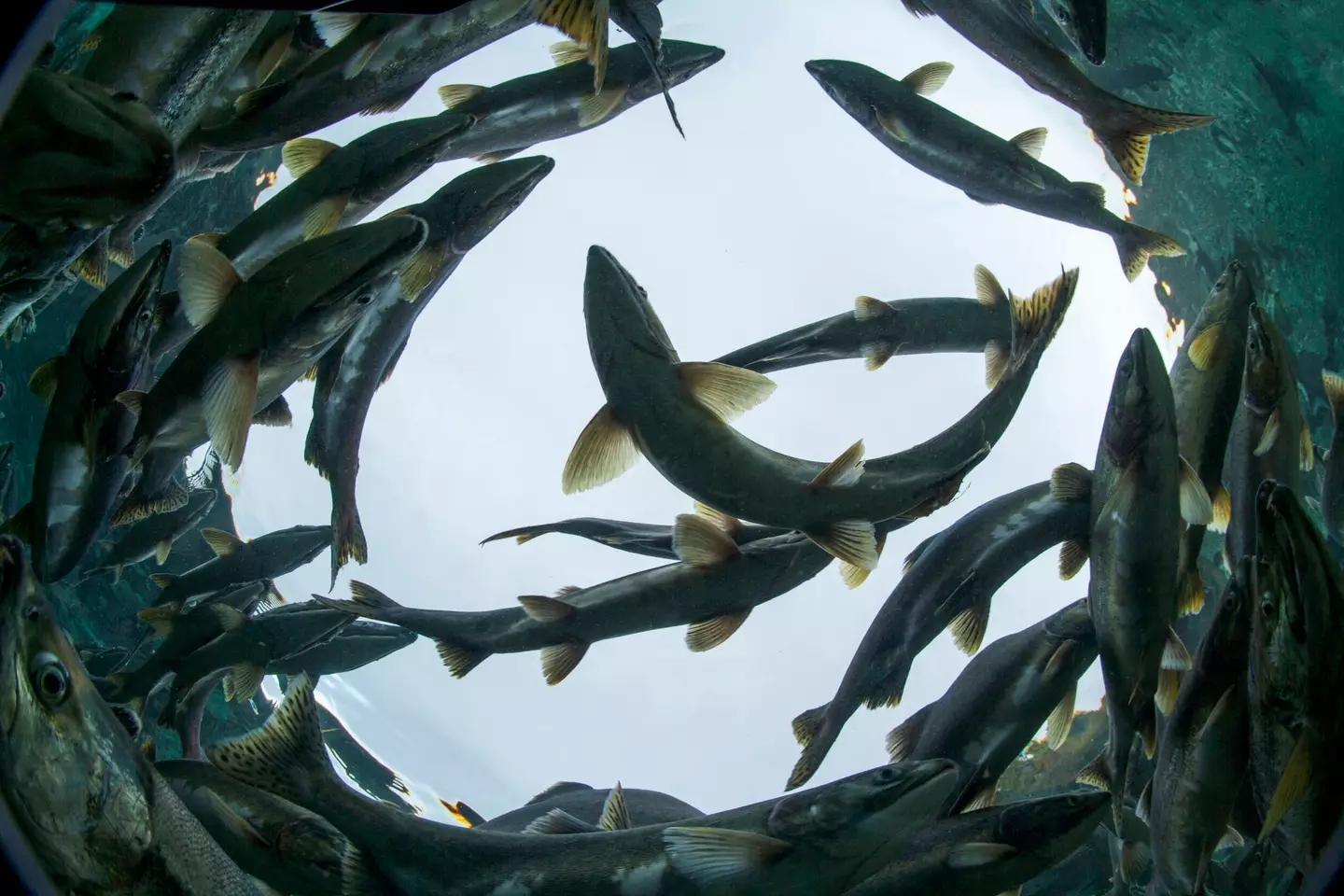
The US Food and Drug Administration (FDA) has given the green light to lab-grown salmon.
Wildtype, the startup behind the lab-grown fish, has already made its ‘cultivated salmon’ available to a restaurant in Portland, Oregon
“We’re proud to share that we completed a thorough pre-market safety consultation with [the] FDA,” the company said in an announcement.
The FDA said it had ‘no questions at this time’ over the ‘cultured salmon cell material’, and said it is ‘as safe as comparable foods produced by other methods’.
Advert

While other lab-grown meats have had the FDA’s seal of approval, such as cultured chicken that was given approval in 2022, but this salmon differs in being sushi-grade and intended to be eaten raw. In other words, it’s lab-grown sashimi.
So, how on Earth does one go about growing salmon meat in a lab?
Wildtype first harvested living Pacific salmon cells and then used specialised lab equipment to grow the cells in conditions similar to a living fish host. This meant setting an exact pH, temperature, nutrient supply, and more besides.
The cells grew to the point of harvestability, at which point the team added ‘a few plant-based ingredients’ to shore up the flavour, texture and appearance, resulting in a slab of lab meat that looks, tastes and feels remarkably close to fresh wild salmon.
It’s available at Kann, a Haitian restaurant in Portland headed up by chef Gregory Goudet.
The lab meat cuts are served with spiced tomato, pickled strawberries, strawberry juice, and a rice cracker garnished with Haitian epis made with garlic, peppers and herbs.
“We could think of no better partner to introduce our cultivated salmon than award-winning chef and author, Gregory Gourdet,” said Wildtype in a press release.
“Weekly service began in late May at his James Beard award-winning Haitian restaurant, Kann in Portland, OR. Guests are now able to experience Wildtype salmon at Kann on Thursday nights in June, then every day starting in July.
Wildtype says another four restaurants will be serving the lab salmon in the near future, although they haven’t been named yet.
“Our saku is sushi-grade and best served raw in dishes like sushi, crudo, and ceviche,” said Wildtype on its website.
“We made it for world-class chefs who seek out the distinct flavor and freshness of raw seafood.”

If lab-grown meat takes off and becomes easier and cheaper to produce, it could prove a remedy to concerns around over-fishing, along with mercury levels and pollutants found in wild salmon.
Of course, convincing dubious diners over the safety, quality, and benefits of opting for lab-grown meats will take more than FDA approval, but who knows where this kind of innovation might lead us.
